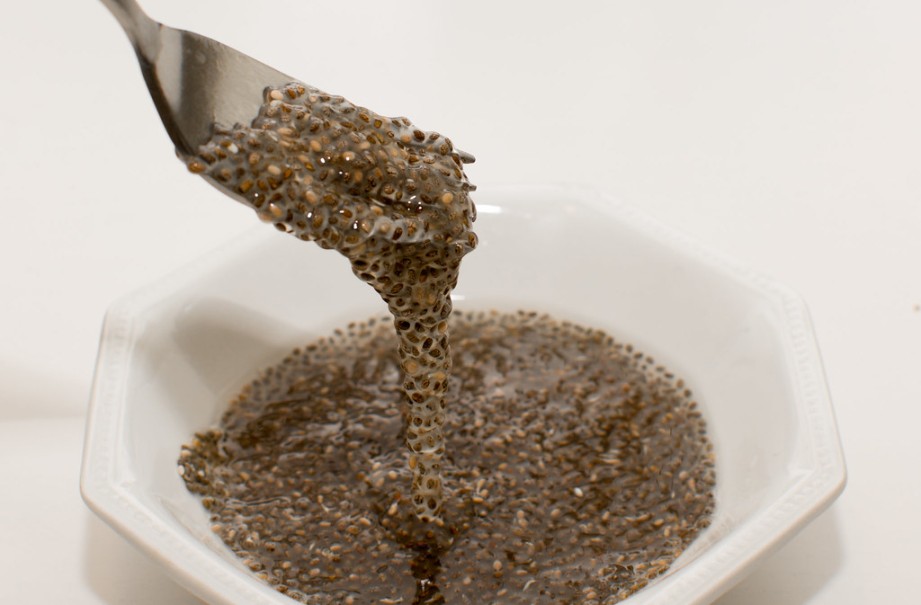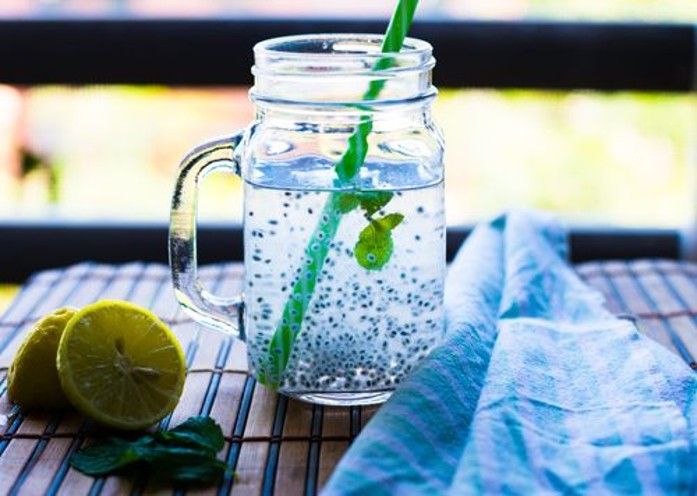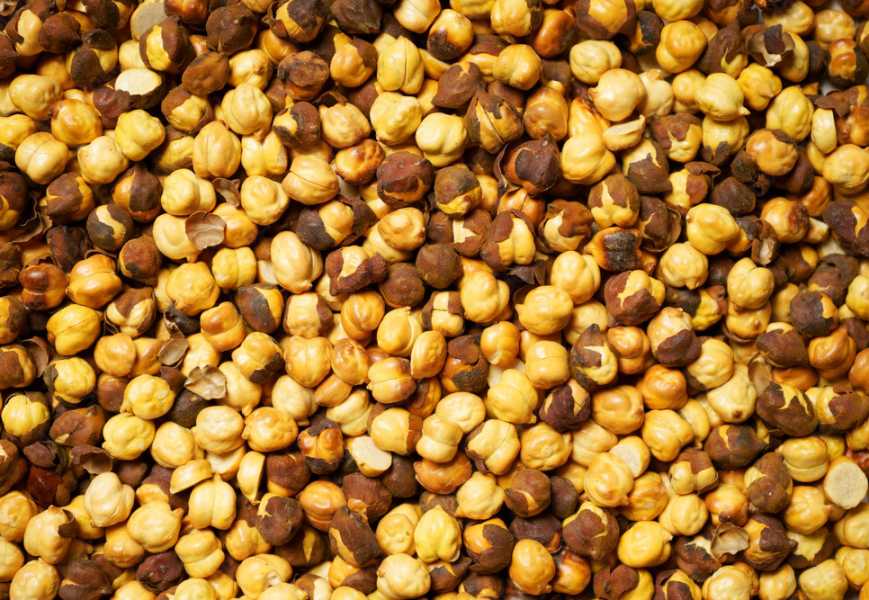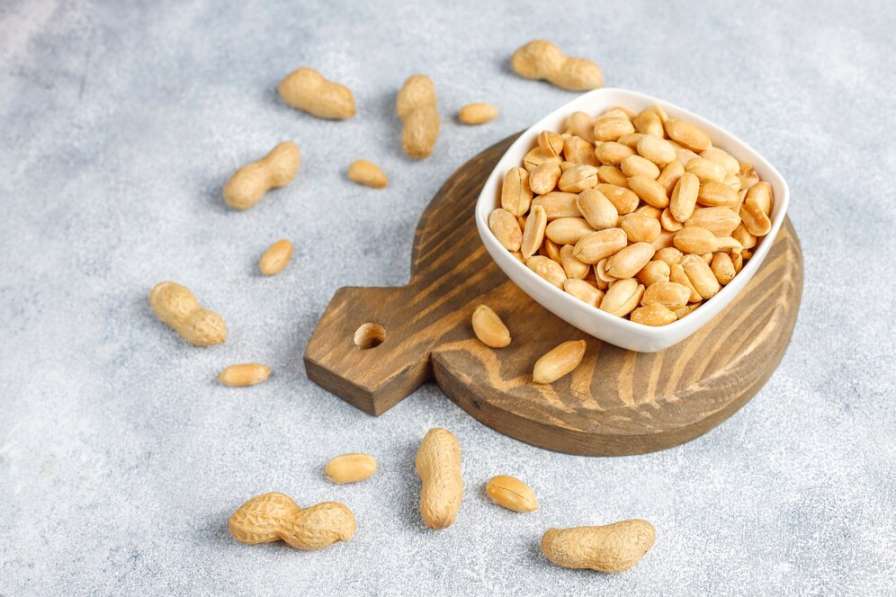Benefits Of Sabja Seeds
Benefits of Sabja Seeds: These tiny black seeds, which are derived from the sweet basil plant, provide several benefits for general health. Sabja (basil) seeds are high in protein, vital fats, carbohydrates, and fibre.

Sabja seeds are also known as basil seeds in the English language. Because of their high level of hardness, sabja seeds cannot be consumed in their raw form. As a consequence of this, it is recommended that they be consumed after being soaked in water, which causes them to become more gel-like. The seeds of the Sabja plant are typically obtained from sweet basil, also known as Ocimum basilicum, which is frequently used as a flavouring.
Sabja Seeds Nutritional Value
- Sabja seeds strengthen the immune system and are rich in nutrients. They are limited in calories and contain 42% carbohydrates, 20% proteins, and 25% healthy fats.
- They’re a great source of omega-3 fatty acids and high in fibre. Along with being strong in vitamins C and folate, they are also high in minerals like potassium, manganese, copper, calcium, and magnesium.
Basil Seeds Nutrition Facts (per 1 tablespoon or 13 grammes)
Basil constituents Amount
Calories 60
Fats 2.5 g
Omega-3 fatty acids 1.240 g
Carbohydrates 7 g
Protein 2 g
Calcium 15% of daily intake
Iron 10% of daily intake
Magnesium 10% of daily intake
Sabja Seeds provides the following health benefits:
1. It works as a natural body coolant.

- Drinks made with sabja seeds are a fantastic way to beat the summer heat. It has been proven that sabja seeds reduce body temperature and calm the stomach.
- Lemon water, coconut water, coconut milk, milkshakes, smoothies, yoghurt, and other drinks can all be made with these seeds.
2. Reduces Acidity & Constipation

- Sabja seeds contain a significant amount of soluble fibre. When we include these seeds in our diet, they take in water, which brings more water into our stomachs and helps us feel fuller for longer.
- Through the process of softening the waste, this encourages regular bowel movements. When it comes to those who suffer from constipation, incorporating sabja into their regular diet can be significantly beneficial.
- Sabja seeds are a good source of soluble fibres, including pectin. It plays a critical role in increasing the quantity of good bacteria in the gut by changing the composition and metabolism of the complex gut microbiota.
3. Decreases blood sugar levels

- Research has demonstrated the remarkable anti-diabetic effects of sabja seeds. Sabja seeds are high in dietary fibre. Regularly feeding diabetics sabja seeds shortly before meals helped to avoid a spike in blood glucose levels.
- Sabja seeds were found to be helpful in controlling blood sugar levels in individuals with type 2 diabetes.
- Patients with diabetes need to watch what they eat very carefully to maintain stable blood sugar levels. It has been found that sabja seeds can prevent diabetes.
- Eaters of Sabja seeds before a meal do not experience a surge in blood sugar, according to several studies. Because sabja seeds control blood sugar levels after meals, they can help in the management of diabetes.
4. Helpful in Weight Loss

- Due to their high soluble dietary fibre content, sabja seeds fill you up and give you a satisfying feeling. Additionally, they control our bowel motions, which helps our bodies rid themselves of impurities.
- The soluble fermentable fibre pectin can help reduce calorie intake. Moreover, it promotes an acidic environment that is beneficial to hindgut health. Calorie restriction causes weight reduction.
- Sabja seeds are high in protein and soluble fibre. Both of these nutrients remain in your digestive system for an extended period of time.
- This indicates that if you eat Sabja seeds, you won’t be hungry for a long time. When you don’t have an appetite, you don’t crave unhealthy snacks. This assists you in staying in shape or losing weight.
5. Improves bowel movement
- Regular bowel movements are also encouraged by the high fibre content. When you don’t drink enough water, the large intestine takes water from your stools, which leads to constipation.
- However, when you take fibre and plenty of water, soluble fibres attract water to the large intestines, softening the stool.
- High-fibre diets are especially suggested for people with heart issues.
6. Beneficial for Skin

- Sabja seeds have a natural detoxifying and clearing effect on the body. This prevents outbreaks of any kind, including acne, and keeps our skin looking beautiful.
- Sabja seeds provide antibacterial and antifungal properties that protect our skin from illnesses.
- Additionally, they are used to treat eczema and psoriasis. Furthermore, our skin has a natural glow because of the amount of vitamins and minerals in sabja seeds.
7. Healthy for Hair

- The seeds of Sabja are high in protein. This protein promotes healthier hair development, increased hair volume, and less hair loss.
- Additionally, dandruff can be eliminated with sabja seed hair oil. For strong, gorgeous hair, mix your oil with sabja seed powder, massage your scalp, and then leave overnight.
Also read: Best food for hair growth
8. Decreases Anxiety & Stress

- Sabja seeds soothe both the body and the mind. They make us feel happier by decreasing tension, stress, and worry.
- Flavonoids, tannins, and terpenoids are present in sabja seeds. Some people have also proven that their antioxidant activity improves memory.
Also read: Best foods for stress relief
9. Benefits for Oral Health

- The antibacterial, antiviral, and antifungal qualities of sabja seeds have been proven to improve oral health.
- They aid in the healing of oral ulcers. They function as a breath refresher. Additionally, these seeds help in the fight against cavities, plaque, and bad breath.
10. Contains Anti-Carcinogenic & Anti-Inflammatory Properties
- Flavonoids and polyphenols are two plant compounds that are abundant in sabja seeds.
- The main group of phytonutrients are flavonoids, which are well-known for their potential to modify the activity of essential cellular enzymes as well as their anti-oxidative, anti-inflammatory, anti-mutagenic, and anti-carcinogenic properties.
- Eating a diet high in flavonoids may lower the risk of heart disease and cancer.
11. A Mineral Powerhouse
- Sabja seeds are high in iron, calcium, and magnesium. Magnesium and calcium are necessary for the best possible health of bones and muscles.
- The protein called haemoglobin, which carries oxygen in the blood, needs iron to stay at optimal levels. In cases of deficiency, sabja seeds are the most effective way to raise levels of calcium and iron.
How should sabja seeds be consumed?

- For around fifteen minutes, soak two tablespoons of Sabja seeds in a cup of warm water. As they get bigger, they swell, and a thin grey coating forms around every black seed.
- These days, you can use these seeds in a wide range of beverages, including smoothies, buttermilk, soups, lemonade, milkshakes, and coconut water. For a great crisp taste, you may also add them to salads, pasta dishes, and ice creams.
How to Use Them
There are recipes on the internet that include basil seeds. Their tasteless flavour blends well with meals.
Basil seeds can be used in:
- smoothies
- milkshakes
- lemonade and other drinks
- soups
- salad dressings
- yogurt
- pudding
- hot cereal like oatmeal
- whole-grain pancakes
- whole-grain pasta dishes
- bread and muffins
Negative Effects
- Bloating is one of the digestive adverse effects that may result from the high fibre content of basil seeds. In order to give your stomach time to adjust, it’s usually preferable to increase fibre consumption gradually.
- It is also important to remember to consume in moderation; otherwise, there will be serious consequences for your health.
Disclaimer: The information presented here is only for educational/awareness purposes and should not be used to diagnose or treat any medical condition. To determine the rightness of the information and before taking any medication, the reader should visit a licenced medical practitioner.
Conclusion
Basil seeds are rich in beneficial plant compounds, including plant-based omega-3 fatty acids, are high in fibre, and are a good source of minerals.
Once they’ve soaked in liquid, you can eat them. Drinks made with basil seeds have been around for a while in Southeast Asia and India, and they are currently becoming more and more popular in the US.
These tiny seeds provide a variety of health benefits, including assisting digestion and increasing hydration, as well as controlling blood sugar levels and supporting weight loss. Including Sabja seeds in your meals, beverages, or desserts will help you feel better about your overall health.
FAQs
1. Can I take Sabja seeds on a daily basis?
Yes, sabja seeds can be consumed on a daily basis and provide many health advantages. It acts as an excellent natural cooler, regulates blood pressure, helps in weight loss, and alleviates acidity and other digestive issues.
2. Do Sabja seeds help in weight loss?
Sabja seed is excellent for fat loss and weight loss. These tiny seeds are a wonderful source of dietary fibre, which keeps one full, minimises food intake, and eliminates undesired hunger pains, thus helping in weight loss. The best way to consume this is to soak sabja seeds in a glass of water for about 15 minutes before drinking the water, or just add them to detox lemon water, buttermilk, or any other fresh juice or smoothie.
3. Who should avoid consuming sabja seeds?
Sabja seeds should not be consumed after surgery because they interfere with blood coagulation. Pregnant women and children should avoid consuming sabja seeds in their drinks or sweets since they cause hormone fluctuations.
4. Is Sabja Seed Beneficial to Thyroid Health?
Sabja seeds are high in omega-3 fatty acids, which help to increase metabolism and preserve thyroid gland function and health.
5. Can I Eat Sabja Seeds If I’m Not Hungry?
Yes, you can eat sabja seeds in that condition. Because it is high in critical nutrients and antioxidants, it acts as an excellent detox drink, flushing toxins from the body.
6. Is sabja seed hot or cold?
Sabja seeds are an excellent natural coolant and have been shown to lower body heat. The seeds are ideal for summer and may be added to any juice or water with seeds of your choosing.
7. Is chia seed the same as sabja seed?
No, chia seeds are not the same as sabja seeds. Chia seeds are small black and white seeds that grow on a desert shrub.
8. Are basil seeds helpful for menstruation?
Yes, basil seeds can help increase menstrual regularity while also lowering menstrual discomfort.
9. What is the English name of sabja seeds?
In English, Sabja seeds are commonly referred to as sweet basil seeds.


